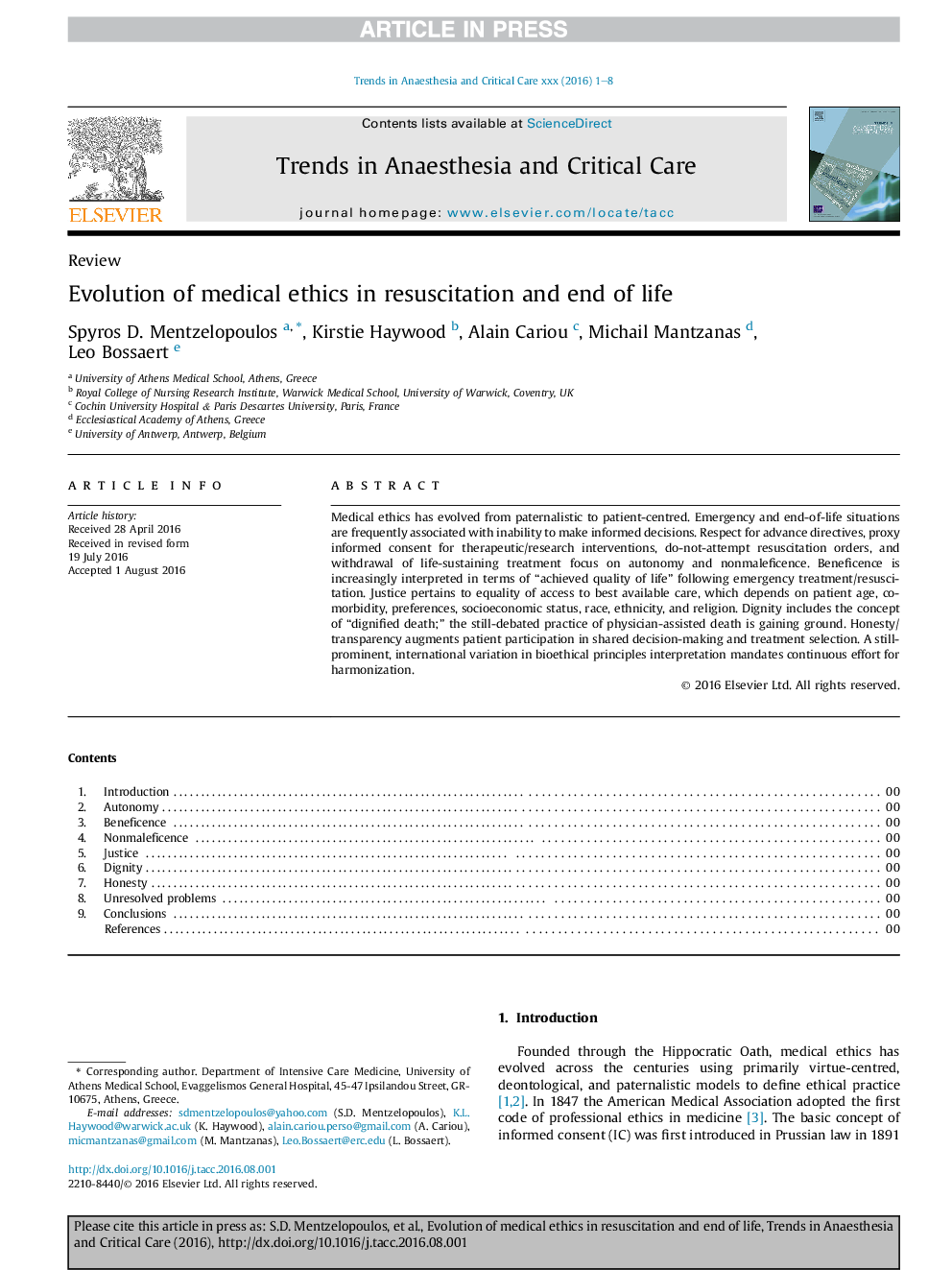| Article ID | Journal | Published Year | Pages | File Type |
|---|---|---|---|---|
| 5584241 | Trends in Anaesthesia and Critical Care | 2016 | 8 Pages |
Abstract
Medical ethics has evolved from paternalistic to patient-centred. Emergency and end-of-life situations are frequently associated with inability to make informed decisions. Respect for advance directives, proxy informed consent for therapeutic/research interventions, do-not-attempt resuscitation orders, and withdrawal of life-sustaining treatment focus on autonomy and nonmaleficence. Beneficence is increasingly interpreted in terms of “achieved quality of life” following emergency treatment/resuscitation. Justice pertains to equality of access to best available care, which depends on patient age, comorbidity, preferences, socioeconomic status, race, ethnicity, and religion. Dignity includes the concept of “dignified death;” the still-debated practice of physician-assisted death is gaining ground. Honesty/transparency augments patient participation in shared decision-making and treatment selection. A still-prominent, international variation in bioethical principles interpretation mandates continuous effort for harmonization.
Related Topics
Health Sciences
Medicine and Dentistry
Anesthesiology and Pain Medicine
Authors
Spyros D. Mentzelopoulos, Kirstie Haywood, Alain Cariou, Michail Mantzanas, Leo Bossaert,
